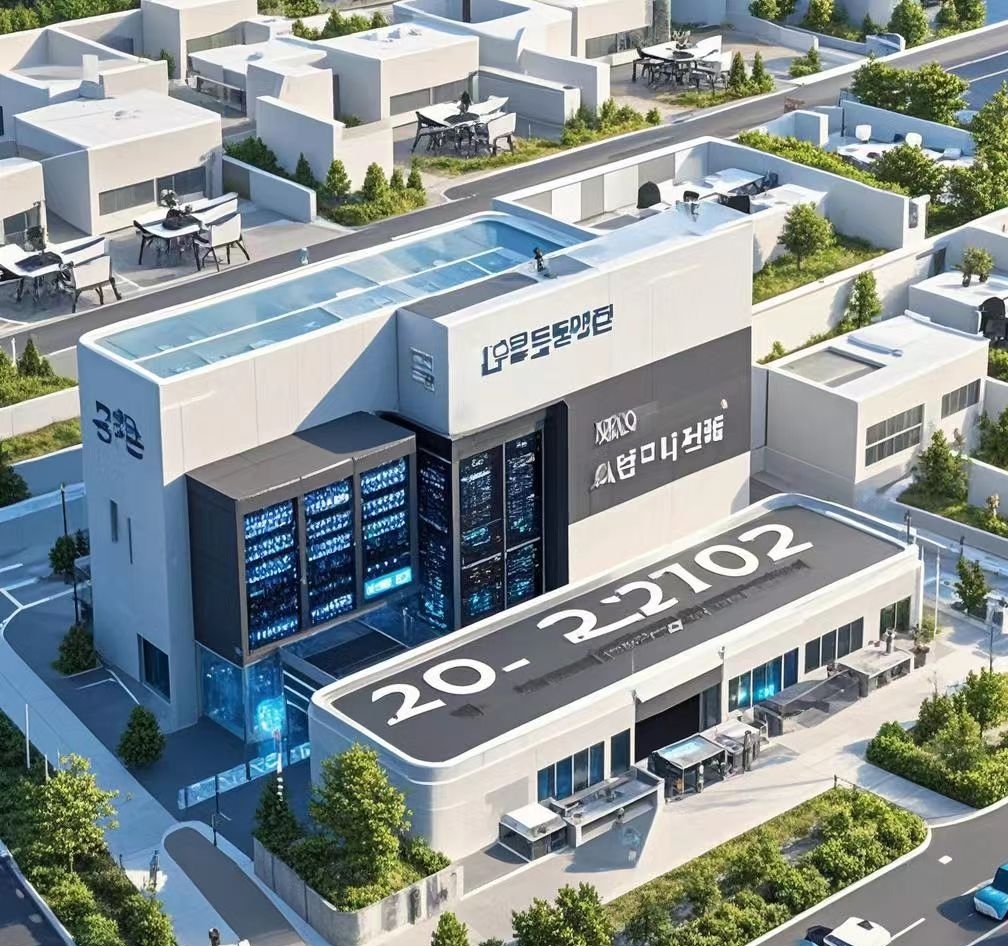
In the era of rapid technological development today, artificial intelligence has become a key area where countries around the world are competing fiercely. South Korea, as an important player in the field of technology, has recently taken a highly strategic step - announcing that it will invest 4 trillion won to establish a national artificial intelligence computing center, aiming to significantly enhance its competitiveness in the field of artificial intelligence. This move will undoubtedly create new waves on the technological landscape of South Korea and even the world.
The South Korean government's decision to do this is no accident. With the in-depth penetration of artificial intelligence technology in various industries, from healthcare, education to manufacturing, finance, etc., the transformative power it can bring has become increasingly prominent. Having powerful artificial intelligence computing capabilities is like holding the key to opening many doors of innovation. South Korea has always had lofty aspirations in technological development and has already achieved remarkable achievements in fields such as semiconductors and electronic communications. However, in this global race of artificial intelligence, South Korea realizes that to maintain its leading position or achieve further breakthroughs, it is crucial to establish a professional and powerful artificial intelligence computing center.
From the hardware perspective, the soon-to-be-built national artificial intelligence computing center is expected to be equipped with top-notch computing equipment. High-performance processors, massive storage devices, and high-speed data transmission channels, etc., will form its strong hardware foundation. These hardware facilities can enable rapid data processing and complex algorithm operations, providing solid support for the training and optimization of artificial intelligence models. For example, in the field of deep learning, the training of large-scale neural network models requires huge computing resources, and this computing center will be able to meet the needs of researchers and enterprises for such large-scale computing, enabling them to train artificial intelligence models with higher accuracy and better performance more efficiently.
From the perspective of software and algorithms, the computing center can bring together top artificial intelligence experts and research teams in South Korea. They can jointly develop advanced artificial intelligence algorithms on this platform and explore new application scenarios and solutions. For example, in the field of natural language processing, develop algorithms that are more intelligent and can accurately understand and generate human language; in the field of computer vision, achieve more accurate image recognition and analysis functions. Meanwhile, the computing center can also provide a rich set of software tools and development environments, facilitating artificial intelligence project development for developers at different levels and promoting the widespread popularization and application of artificial intelligence technology in South Korea.
For South Korea's scientific research institutions, the national artificial intelligence computing center will become a powerful assistant for them to carry out cutting-edge research. Researchers can utilize its powerful computing resources to conduct various high-difficulty scientific research projects. For example, in biomedical research, analyze a large amount of gene data through artificial intelligence to search for disease-causing genes and potential treatment targets; in climate science research, use artificial intelligence models to simulate and predict climate data, providing a scientific basis for addressing climate change. This will greatly promote South Korea to achieve new breakthroughs in basic scientific research with the help of artificial intelligence.
For enterprises, this computing center is even more of a precious resource platform. Many technology enterprises, manufacturing enterprises, etc. in South Korea can access this computing center and utilize its computing capabilities to optimize their production processes and improve product quality. For example, manufacturing enterprises can achieve intelligent monitoring and fault prediction of production lines through artificial intelligence, detect problems in advance and solve them in a timely manner, thereby improving production efficiency and reducing production costs. Technology enterprises can use the computing center to accelerate the research and development of new products, such as developing smarter smart home products, more convenient mobile applications, etc., enhancing their competitiveness in the market.
From the perspective of talent cultivation, the establishment of the national artificial intelligence computing center will attract more young people to engage in the field of artificial intelligence. It will provide abundant practical opportunities and learning resources here, allowing young people to master artificial intelligence technology through actual operations. Meanwhile, by holding various training courses, academic lectures and other activities, a good learning atmosphere for artificial intelligence will be created, cultivating a continuous stream of artificial intelligence professionals for South Korea and 充实 South Korea's talent reserve in this field.
In addition, the establishment of the national artificial intelligence computing center by South Korea will also have an important impact on a global scale. On the one hand, it will intensify the competitive situation in the global field of artificial intelligence, prompting other countries to accelerate their paces in aspects such as the construction of artificial intelligence infrastructure, and promoting the faster development of global artificial intelligence technology. On the other hand, South Korea's innovation achievements and application cases in the field of artificial intelligence may also be better demonstrated and promoted through this computing center, contributing South Korea's wisdom and experience to the development of global artificial intelligence.
However, South Korea may also face some challenges during the construction process. For example, how to ensure that such a huge investment can be used reasonably and effectively to avoid resource waste; how to coordinate the interests of different research teams and enterprises to achieve resource sharing and coordinated development; how to ensure data security and privacy while developing artificial intelligence rapidly. But it is believed that with South Korea's experience in technology management and coordination and its firm determination to develop artificial intelligence, these challenges will be gradually solved.
The investment of 4 trillion won by South Korea to establish a national artificial intelligence computing center is a far-reaching initiative. It will not only inject strong impetus into the development of South Korea in the field of artificial intelligence and enhance its position in the global technological competition, but also bring new opportunities and inspirations for the development of global artificial intelligence. In the future, we have reason to expect that South Korea will create more remarkable achievements in the field of artificial intelligence with the help of this powerful platform.

Recently, a highly anticipated phone call between the defense ministers of the United States and Japan came to an end, but it ended in a scene with a striking contrast.
Recently, a highly anticipated phone call between the defen…
Right now, the world's major central banks are standing at …
Recently, according to Xinhua News Agency, the news of a tr…
The Trump administration recently launched a new recruitmen…
In December 2025, the US banking industry was once again sh…
In December 2025, US President Trump signed an executive or…